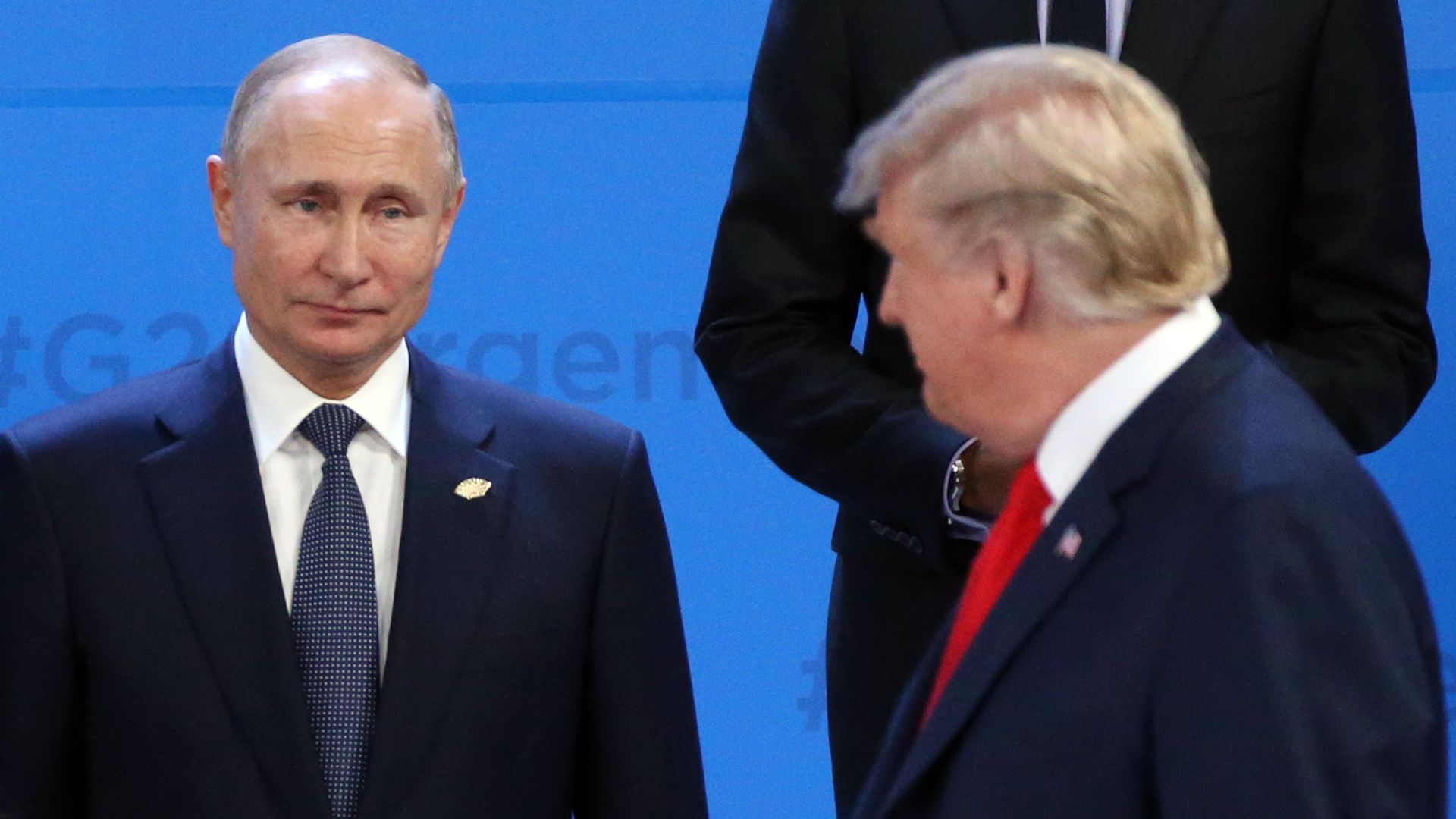Updated Jul 2, 2019 - Politics & Policy
Study finds correlation between Russian social media trolls and 2016 polling
Add Axios as your preferred source to
see more of our stories on Google.

President Trump and Russian President Putin at the 2018 G20 summit. Photo: Mikhail Svetlov/Getty Images
